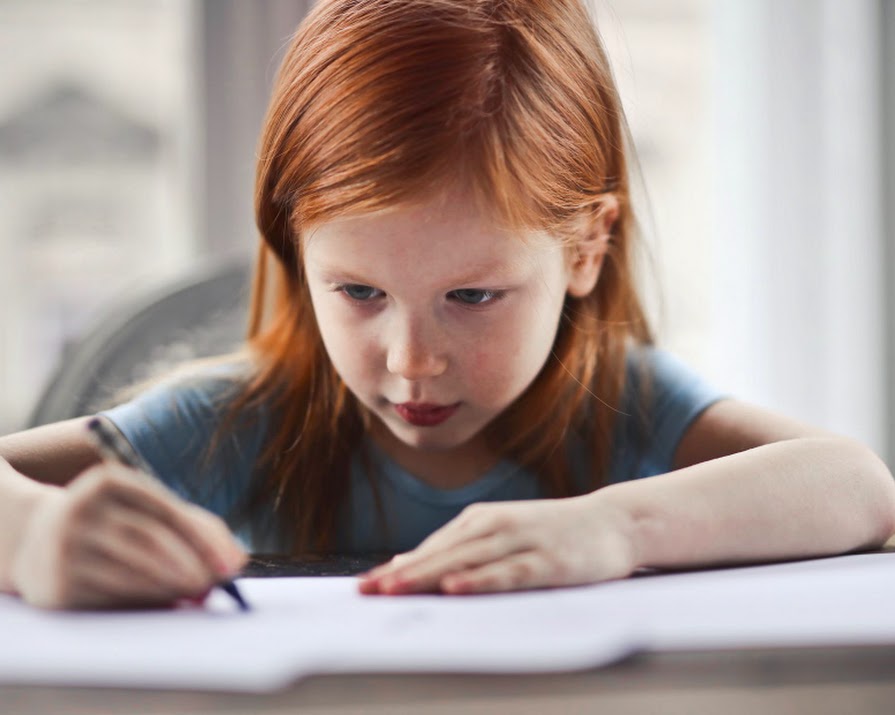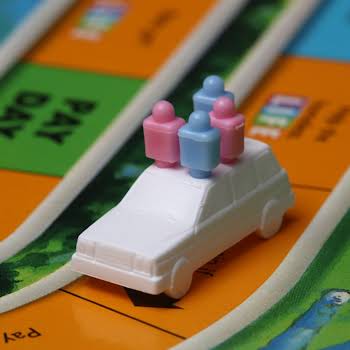
By Amanda Cassidy
30th Aug 2020
30th Aug 2020
Is homework really necessary? Do the educational benefits trump the stress, frustration and lack of activity that comes with sitting down again after school, especially as we navigate our new pandemic normal? Amanda Cassidy asks if opting out of homework is the way forward.
“Just opt out,” says Rebecca Swanston. “Why go along with homework if you don’t think it is good for your child?” In an article for the Washington Post last week, Swanston, a writer from Colorado, pointed out that taking a common-sense approach to your children’s education when it comes to homework has merit.
“For my 6-year-old and my 10-year-old, this is the real world. They are already working hard — learning everything from how to do fractions to how to share to how to stand up to bullies to how to not be a bully.
“By the time they get home each afternoon, they are thrilled to battle each other with lightsabers, race in circles around the backyard, or sink into the sofa with a book they have chosen,” she explains.
“Why, then, do grown-ups feel the need to push our smallest ones, who still find joy in pretend kitchens and climbing trees, into an adult world?”
“I can relate — most days I long to do that myself. I know I’m not alone at feeling overwhelmed with my workload. So why, then, do grown-ups feel the need to push our smallest ones, who still find joy in pretend kitchens and climbing trees, into an adult world where homework is purportedly required to survive — or to succeed?”

Independence
With the complications of returning to the school environment after lockdown, and the need to not ferry books home and back to school to discourage the spread of the virus, maybe it is time to give homework the boot once and for all?
When I was in primary school, we debated the same topic over and over. Why did we need to do more work after school?
Some experts argue that fundamentally, homework is a tool for reinforcing the lessons learnt that day; it is a chance for parents to connect with what their child is learning; it fosters good study habits and it allows children to work independently. In our house, we encourage the children to manage their work themselves, ticking off work as they finish, even tidying away their own bags.
But things are different now.
My pair are going into third and fourth class in primary school so homework doesn’t ever take more than about 30-40 minutes. And while I enjoy seeing what they are learning and find it a useful tool for spring boarding onto other conversations about school from a social aspect, wouldn’t they be better off shedding off their school day and escaping into play?
In fact, there are increasing rumbles from a number of academics who say there is evidence that homework may be detrimental to younger children.
Frustration
The late child psychologist Dr David Carey spoke on the topic in an interview with the Irish Times. “The problem with homework is the stress and strife it causes in the family, with parents being driven to distraction by children who don’t want to do their homework. It causes arguments, tears and disruption to family life,” says Dr Carey.
“Nobody who comes home from work likes to sit down and immediately and be asked ‘how much work did you bring home today?’ and ‘when are you going to do it?’, and so on, but this is what we do to children.
Sitting for up to five hours a day and then being expected to further sit and study isn’t conducive to the active lifestyle health practitioners encourage. Furthermore, a child’s development is very much dependent on playing — not just for fun, but for building strength; calculating risks; learning cooperation; social development; promoting vestibular development; hand-eye coordination and even sensory exploration.

What is learning?
The problem isn’t so much the actual homework, as the lack of time for children to simply play — which they are not doing. And let’s be honest, this isn’t just torture for the kids!
But even if we did decide to opt out en masse. Here in Ireland, is it even legal?
We spoke to the Department of Education and Skills about where the law stands here. “All policies and decisions regarding homework are school-based. Schools are free to have their own policy on homework but are not obliged to have a published policy on this issue. The development of school policies involves senior management and staff, the board of management, parents and in many instances, the pupils themselves.”
It continues: “The policy should give clarity to the whole school community about the purpose of the homework and what is expected at each class level. However, while there is no obligation on a school to have a published policy on homework, having such a policy and reviewing it regularly would be considered to be good practice. The development of school policies to include homework should involve senior management and staff, the board of management, parents and the pupils.
Currently, there are no plans to formulate guidelines/policy on homework in primary schools”.
Bookishness isn’t always a measure of success — going to college isn’t always the measure of achievement
Upgrading
The school programme now isn’t much different from when we were at school (that’s 30 years ago in my case). But the world is changing — we now better understand the importance of things outside of academia, and that bookishness isn’t always a measure of success — that going to college isn’t the pinnacle of achievement.
In the new digital era, shouldn’t schools be evolving to reflect what we’ve learnt over the past 30 years? The Department of Education responded: “The Government has put significant emphasis on the area of healthy lifestyles as part of the Healthy Ireland initiative being led by the Department of Health.
“The issue of promoting healthy lifestyles is addressed in schools through subjects such as Social, Personal and Health Education (SPHE), and Home Economics as well as in Physical Education, which was made a Leaving Certificate examinable subject for the first time in 2018. The aim with all interventions is to equip students with such skills and knowledge to enable them to make appropriate choices for healthy lifestyles.
“Physical Education is a core part of the curriculum, at all levels – primary and post-primary — and all schools are required to plan their timetables to allow for adequate breaks.”
Digital strategy
The Department also pointed out various action plans and Student and Parent charter bills set up to improve how schools engage with students and their parents. A digital strategy was also published in 2015; The Digital Strategy for Schools 2015-2020 Enhancing Teaching Learning and Assessment, which is the next stage of the ICT in Schools programme. This is a five-year programme that hopes to be expanded to help with key areas including curriculum implementation, skills development, teacher education and learner outcomes.
In my son’s national school, each afternoon they get fitness homework — in other words, gentle encouragement to go out and be as active as possible. It is a small but significant part of their homework each evening. If my gang don’t trampoline or swing or play before homework, they are restless, can’t sit still and are uninterested in learning.
People will no longer spend 10 or 20 years in the same job, sitting endlessly staring at screens.
There is merit in letting them discover the world around them outside the confinements of school, even just at primary level. Perhaps it is more of a societal dilemma; that we’ve placed too much emphasis on academic success and less on other skill-sets that involve compassion, exploration, creation or innovation.
Maybe we’ve been too rigid in our belief that the measure of success is getting into university, or that 8-hour sedentary office jobs are the ultimate goal.
Our world is changing, happiness, activity and fulfilment are the new driving forces. We’ve just come through a very difficult time, our children are still healing.
Besides, people will no longer spend 10 or 20 years in the same job, sitting endlessly staring at screens.
We’ll leave that to the robots…
Image via Pexels.com
Read more: Parenting in the age of fear
Read more: The five torturous stages of bringing the children to swimming lessons
Read more: Hyper parenting and how to step away























